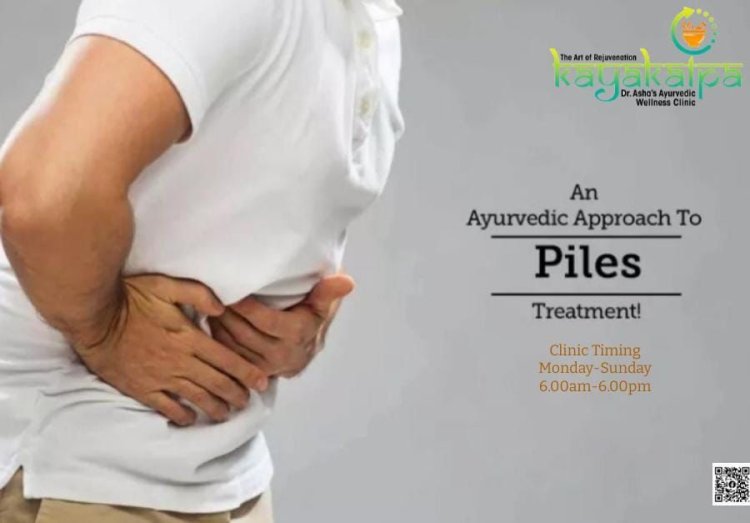Dietary Changes to Prevent and Manage Piles in Pregnancy
This blog will discuss practical dietary practices that expecting mothers should follow to protect their digestive systems and reduce their chance of developing piles.
Share this Post to earn Money ( Upto ₹100 per 1000 Views )

While being pregnant is an amazing experience, several difficulties may arise, one of which is the growth of piles (hemorrhoids). This can be a painful and uncomfortable ailment that is characterized by enlarged veins in the rectal area. Fortunately, during this crucial period, dietary modifications can have a big impact on controlling and preventing piles. This blog will discuss practical dietary practices that expecting mothers should follow to protect their digestive systems and reduce their chance of developing piles.
Piles in Pregnancy
Piles are particularly common during pregnancy due to hormonal changes, increased pressure on the pelvic region from the growing uterus, and changes in bowel habits. Symptoms can include itching, discomfort, swelling, and bleeding. A proactive approach to diet can help alleviate these symptoms and promote overall well-being.
Key Dietary Changes to Consider
Increase Fiber Intake
Including a high-fiber diet is one of the best strategies to avoid and treat piles. Fiber facilitates regular bowel movements and softens feces, which lessens the strain during defecation, which is the main cause of piles.
Sources of Fiber: Include whole grains (brown rice, quinoa, oats), legumes (beans, lentils, chickpeas), fruits (apples, pears, berries), and vegetables (carrots, spinach, broccoli) in your regular diet.
Stay Hydrated
Adequate hydration is crucial for maintaining healthy digestion. Drinking plenty of water helps to keep stools soft, making them easier to pass.
Recommendations: Aim for at least 8-10 glasses of water per day. Herbal teas and fresh fruit juices can also contribute to your fluid intake, but be mindful of excessive sugar in some juices.
Incorporate Healthy Fats
Good fats help facilitate digestion and keep constipation at bay. Moreover, they support preserving general health throughout pregnancy.
Sources of Healthy Fats: Include avocados, nuts (almonds, walnuts), seeds (chia, flaxseed), and olive oil in your meals. These foods can enhance flavor while promoting digestive health.
Limit Processed Foods
Processed foods can make constipation and digestive problems worse because they are frequently high in harmful fats and carbohydrates and poor in fiber.
What to Avoid: Restrict your intake of white bread and pastries, fast meals, and snacks high in refined sugar. Whenever possible, choose whole-food substitutes instead.
Eat Small, Frequent Meals
Pregnant women may have intestinal discomfort, which can be aggravated by large meals. Meals should be smaller and more often to maintain a healthy digestive tract.
Strategy: Aim for five to six smaller meals throughout the day, as opposed to three large ones. Additionally, this helps alleviate nausea, which is a typical early pregnancy symptom.
Include Probiotic-Rich Foods
Probiotics are good microorganisms that promote intestinal health and ease constipation. Eating more foods high in probiotics can improve digestion and possibly lower the risk of piles.
Probiotic sources: Include fermented foods such as yogurt, kefir, and sauerkraut in your diet. Make sure they are safe for expectant mothers and pasteurized.
Avoid Foods That Cause Constipation
Certain foods can lead to constipation, which is a risk factor for developing piles. Identifying and limiting these foods can be beneficial.
Foods to Limit: Cut back on red meat, refined carbohydrates, and dairy products if they're causing you problems. Observe how your body responds and make any adjustments.
Maintain a Balanced Diet
While focusing on fiber and hydration, it’s essential to keep up a balanced diet that includes a variety of nutrients to support both your health and the development of your baby.
Balanced Plate: Incorporate lean proteins (chicken, fish, legumes), a wide range of colorful vegetables, and whole grains into your meals to ensure you’re getting all the necessary vitamins and minerals.
Conclusion
Managing and preventing piles during pregnancy can be significantly influenced by dietary choices. A high-fiber diet, drinking plenty of water, and choosing foods carefully might help expecting mothers improve their digestive health and lessen the likelihood of experiencing piles-related discomfort. As usual, before making any significant dietary changes—especially when you're pregnant—you should speak with your doctor. With the right approach, you can enjoy this beautiful journey while keeping your health and comfort in check.

 Kayakalpa
Kayakalpa 













